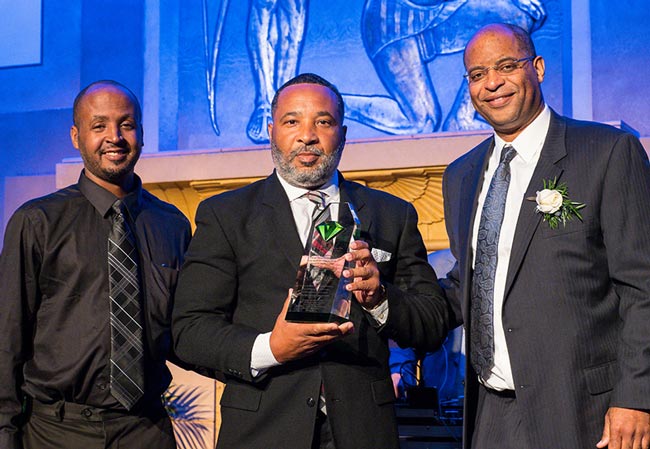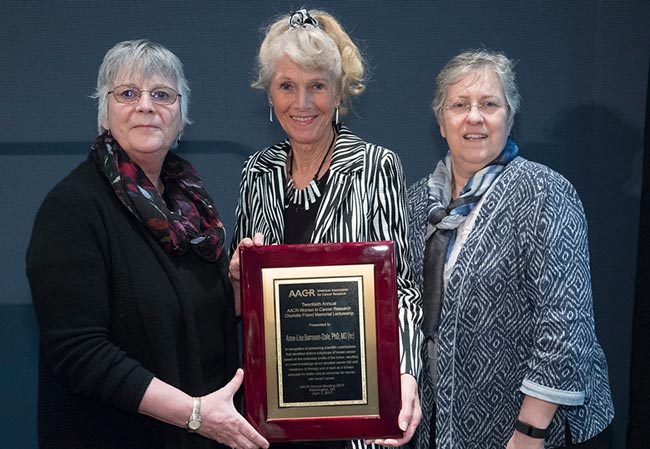Membership by the Numbers
Soon after establishing the AACR on May 11, 1907, the 11 founders inducted 23 Charter Members and 10 Charter Associate members. These 33 physicians and scientists were the first AACR members to commit themselves to the organization’s charter mission of “further[ing] the investigation and spread[ing] the knowledge of cancer.”
As the AACR has evolved over the course of 110 years, the organization’s mission statement has also evolved. Today, the organization strives to “prevent and cure cancer through research, education, communication, and collaboration.” The membership has grown from those 33 charter members to the more than 40,000 scientists, clinicians, and other health care professionals who advance the AACR’s mission by pursuing groundbreaking discoveries every day. From all sectors of the cancer community—and from across the spectrum of cancer science—the AACR membership is the catalyst for cancer prevention and cures.
Members by Category
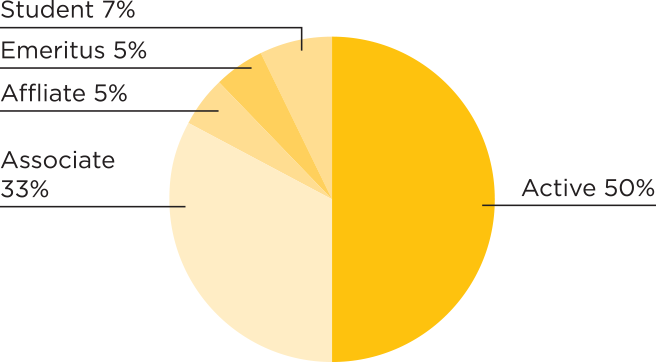
Active Members: Established laboratory researchers, physician-scientists, clinicians, and population scientists
Associate Members: Young laboratory scientists and physicians-in-training (graduate students, medical students and residents, and clinical and postdoctoral fellows)
Student Members: Undergraduate and high school students
Emeritus Members: Active members who have reached the age of 70 years
Affiliate Members: Other health care professionals (practicing oncologists, nurses, laboratory technicians, non-scientific corporate professionals, and patient advocates)
6,315
New members joined the AACR in 2017.
44
Nobel Laureates have been members of the AACR.
3,435
Individuals have been AACR members for more than 25 years.
151
Individuals have been AACR members for more than 50 years.
120
Countries are represented by AACR members.
4,460
AACR members are younger than 30 years of age (12% of all members).
2,623
AACR members are older than 70 years of age (7% of all members).
U.S. States with the Most AACR Members
California
3,713
Massachusetts
2,257
New York
2,154
Maryland
2,011
Texas
2,001
Non-U.S. Countries with the Most AACR Members
Japan
1,664
China
930
Republic of Korea
830
England
709
Germany
598
Note: Totals may not equal 100% due to rounding.
Members by Location
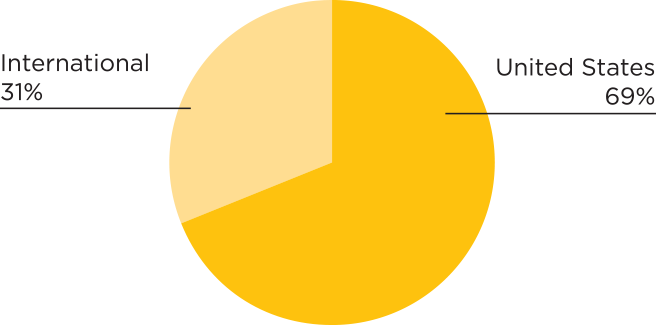
Members by Race/Ethnicity
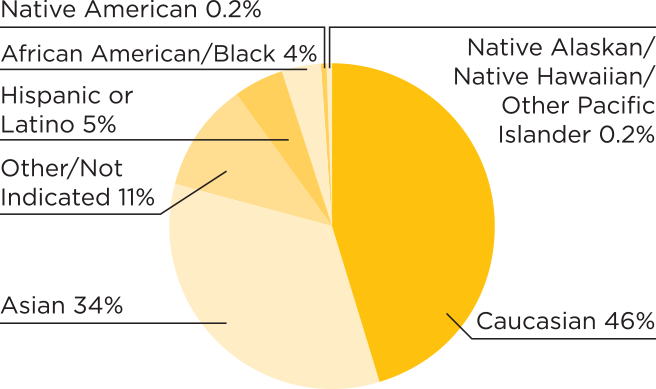
Members by Gender
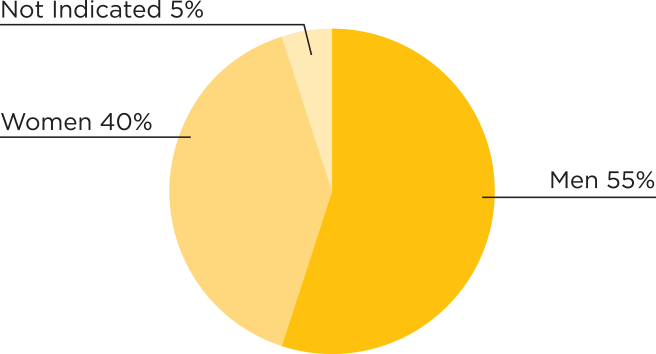
Members by Work Setting
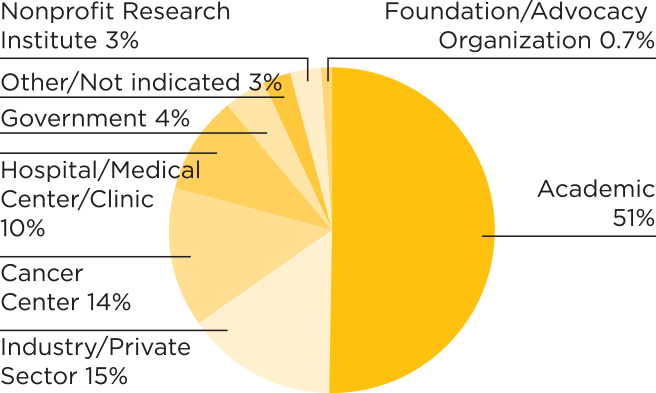
AACR Membership: Diversifying the Cancer Workforce
Diversity in scientific inquiry is critical to the prevention and cure of cancer, as advances in cancer treatment and care depend upon an increasing understanding and application of basic, translational, clinical, and epidemiological science. Diversity in the cancer research workforce is also critical to the AACR’s mission. To ensure that its membership reflects the patients that it serves, the AACR identifies, trains, and mentors talented scientists from populations that are underrepresented in the scientific community.
Associate Member Council
(AMC; 2017 Chair: Kenneth Dutton-Regester, PhD)
AMC serves as the leadership body for AACR associate members, which consists of graduate students, medical students and residents, and clinical and postdoctoral fellows. The council develops programs that address the particular needs of early-career scientists.
Minorities in Cancer Research
(MICR; 2017 Council Chair: John M. Carethers, MD)
MICR is a membership group within the AACR committed to preventing and curing cancer while meeting the professional needs and advancing the careers of minority scientists.
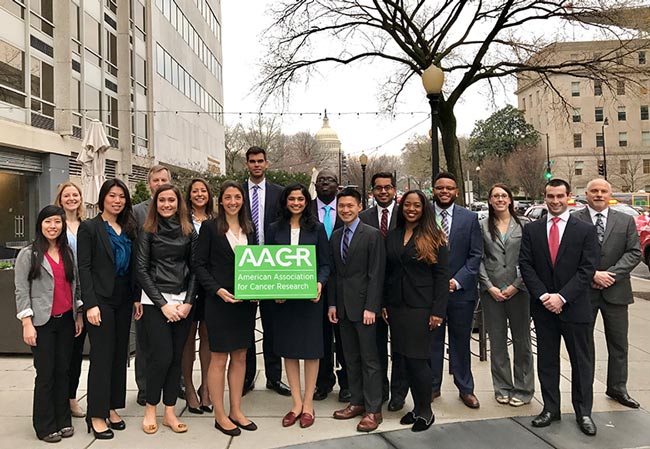
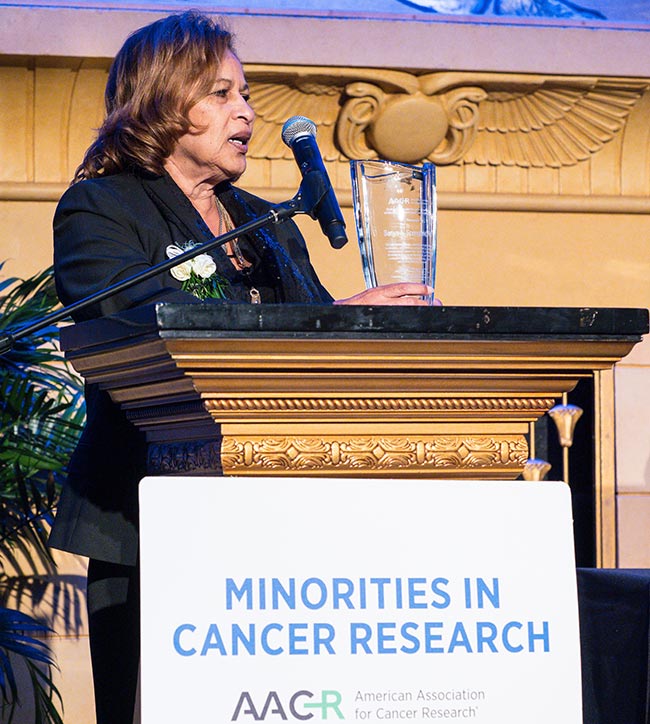
Women in Cancer Research
(WICR; 2017 Council Chair: Judith S. Sebolt-Leopold, PhD)
WICR is a membership group within the AACR committed to recognizing women's scientific achievements and fostering their career development and advancement in cancer research.
